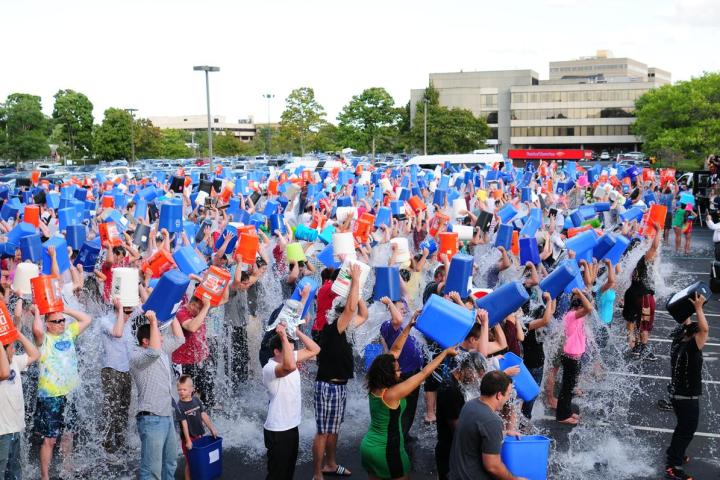
But like all fads, after the brouhaha ended, people seemed to forget that the movement was about more than giving yourself hypothermia — so where did all the money go? According to the ALS Association, thus far, “$47.1 million, has been spent or budgeted toward specific purposes,” whereas the rest of the money will ultimately be divided up among five main buckets of their own.
As CNN reports, the largest chunk of the $115 million will go towards research. $77 million, representing 67 percent of the money raised, will go to scientists, researchers, and doctors searching for a treatment or cure to the disease. Today, patients only have between two and five years to live after being diagnosed, and there is only one medication that appears to “modestly extend survival.”
But experts are hopeful that this cash injection could go a long way in changing the current tragic reality of ALS. Dr. Jonathan Glass of Project MinE, which has received $1 million to fund their research, told CNN, “Right now we have very few things that we can do for these patients to keep them alive longer. If we can take a disease that kills you in three years and make it a chronic disease that you live with for 10 or 15 years, I think we’ve done something very big.”
The second largest expenditure with the money raised from the Ice Bucket Challenge will go to “patient and community services,” including 39 local ALS chapters and 48 ALS treatment centers. These organizations help patients live with the disease, and provide support and best-in-class medical attention. Then, another $10 million is being allocated to initiatives geared towards “public and professional education,” which would not only raise awareness about the disease, but also provide healthcare professionals with the best available resources to help their patients.
The fourth bucket, worth $3 million, will be dedicated to continuing the fundraising efforts that were so successful last summer. It will cost some money to maintain the relationships formed during the Ice Bucket Challenge and to keep the Association and its work in the forefront of our minds. And finally, $2 million is to be spent on logistics, such as “external processing fees.” After all, accepting donations and maintaining a website can be expensive work.
So there you have it, America. Your shivers and dollars are being put to good use … a year later.
